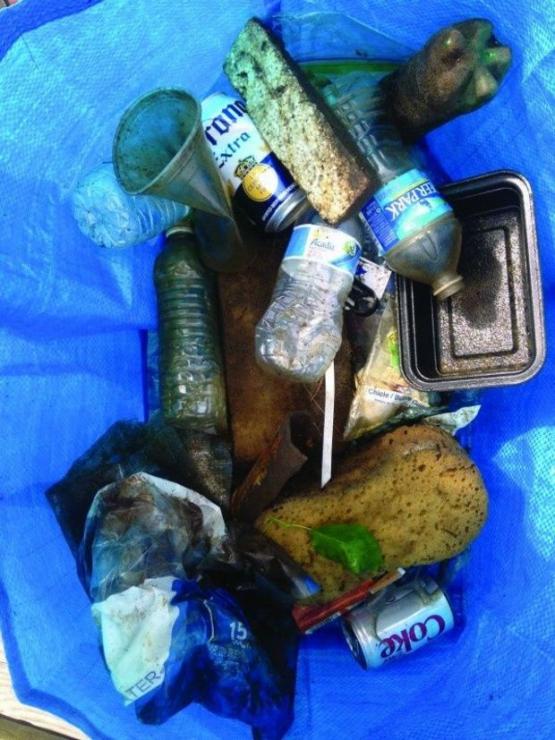Most of us recycle and make efforts to live more sustainably. There are plenty of practices we already know are important; stop using single-use, plastic water bottles, reusable shopping bags, buy less plastic. But there are some more unconventional means to reduce our plastic impact on the environment.

Here are five things you may not have thought of.
1. Avoid items packaged in plastic.
Or adding plastic bags to produce. Some packaging is a necessary evil, but cardboard and glass packaging is much cheaper and more readily recycled. On every occasion you can, skip the plastic bag for your produce and find other items that aren’t over-packaged.
2. Bring a reusable mug or bottle.
I have a steel insulated cup that lives in my car or in my bag. Whenever I get a hot drink, or even a cold one, I take it with me and refill it. It’s a little something I can do for the environment, and I save a bit on my drink, as well.
3. If you must use disposable tableware, get the non-plastic kind.
A set of enameled steel dishes is non-breakable and eliminates the need for disposable dinnerware plates. But if you just can’t figure out any other way, you could buy reusable dinnerware, or dinnerware made from recycled paper or biodegradable plastics which are not a great solution but a step in the right direction.
4. Wear clothing made of natural, not synthetic, materials.
Sporting synthetic fabrics and then the washing of those fabrics, leads to minuscule fragments sloughing off that end up in the world’s waterways and oceans. The plastic bits in the world’s oceans, and in those oceans’ wildlife, are direct descendants of synthetic fabrics. Try to wear biodegradable fabrics like cotton, silk, linen, and wool.
5. Say, “No straw, please!”
You’re familiar with the ubiquitous straw. There are some ugly statistics about how many of those straws go unused and straight into landfills. And used straws are among the top 10 litter items found on beaches. Remember to tell your wait staff “No straw.”
By Elizabeth Kelch